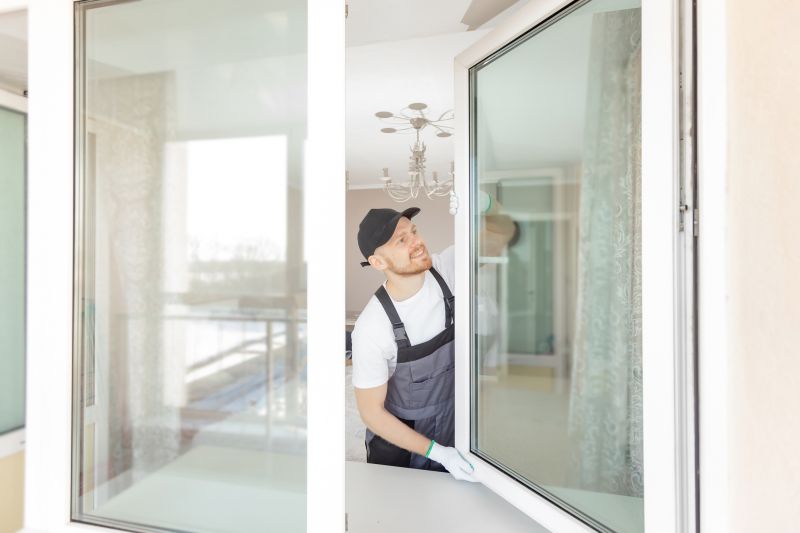Essential Products For Efficient Windows Installations
Equip yourself with the top-rated tools and accessories that facilitate quick and hassle-free Windows setup.
 Installing or upgrading windows often requires a variety of specialized products to ensure a secure, functional, and aesthetically pleasing result. From the initial preparation to final sealing, the right selection of materials can make a significant difference in the durability and appearance of the installation. Common products include weatherproofing tapes, sealants, insulating foam, and mounting hardware, each serving a specific purpose in the process. Proper application of these items can help prevent drafts, water intrusion, and energy loss, contributing to a more comfortable indoor environment.
Installing or upgrading windows often requires a variety of specialized products to ensure a secure, functional, and aesthetically pleasing result. From the initial preparation to final sealing, the right selection of materials can make a significant difference in the durability and appearance of the installation. Common products include weatherproofing tapes, sealants, insulating foam, and mounting hardware, each serving a specific purpose in the process. Proper application of these items can help prevent drafts, water intrusion, and energy loss, contributing to a more comfortable indoor environment.
Top Overall Option
Universal Window Installation Kit
A comprehensive kit that includes essential components such as sealants, weatherproofing tapes, mounting hardware, and insulating foam, designed to accommodate a variety of window types and installation scenarios. It offers versatility and convenience for both DIY enthusiasts and professionals, ensuring all necessary materials are available in one package. Proper use of these products can support a secure and energy-efficient window setup.
Types of Products For Windows Installations
Weatherproofing Tape
Used to seal gaps around the window frame, providing a barrier against air and water infiltration.
Acrylic Sealant
A flexible, durable sealant ideal for sealing joints and cracks around windows.
Polyurethane Foam
Expanding foam used for insulation and filling gaps to improve energy efficiency.
Mounting Hardware
Includes brackets, screws, and fasteners necessary for securing windows in place.
Window Flashing
Metal or flexible strips that direct water away from the window opening to prevent leaks.
Insulating Window Film
A film applied to glass to reduce heat transfer and improve insulation.
Sill Pan
A prefabricated or custom-made component that directs water away from the window sill.
Vapor Barrier
Material used to prevent moisture from penetrating walls and window areas.
Fasteners and Anchors
Various screws, nails, and anchors designed for secure window mounting.
Window Trim and Casing
Decorative and protective trim pieces that frame the window opening.
Drainage Mats
Materials that facilitate water drainage around window installations.
Pivot and Locking Mechanisms
Hardware components that enable window opening, closing, and security.
Glass Pane Protectors
Films or coverings that protect glass during installation and transport.
Sill Extenders
Extensions that improve water runoff and protect the window sill.
Acoustic Insulation
Materials used to reduce sound transmission through window assemblies.
Popular Choices
Widely used for sealing around window frames to improve insulation and prevent leaks.
Commonly selected for its flexibility and weather resistance in sealing joints.
Popular for its insulating properties and ease of application in filling gaps.
Essential for securing windows firmly in place during installation.
Trusted for directing water away from the window opening, reducing potential leaks.
Chosen for its ability to enhance thermal insulation on existing windows.
Commonly used to protect window sills from water damage.
Important in high-humidity environments for moisture control.
Regularly selected for their strength and compatibility with various wall materials.
Popular for finishing and aesthetic enhancement around window frames.
Chosen for effective water management in complex installations.
Selected for their reliability and security features.
Used to safeguard glass during handling and installation.
Popular for improving water runoff and protecting window sills.
Chosen by those seeking to reduce noise transmission through windows.
Choosing the appropriate products for your window installation also involves considering the type of window, the building structure, and local climate conditions. For example, in areas with high humidity or frequent storms, weather-resistant sealants and tapes are essential. Additionally, selecting compatible hardware and fasteners ensures that the window remains securely in place over time. Many products are designed to be user-friendly, allowing homeowners and DIY enthusiasts to achieve professional results without extensive experience.
When planning your project, it is helpful to gather a comprehensive list of necessary products and understand their specific functions. This preparation can streamline the installation process and reduce the likelihood of issues later on. Remember that using quality, appropriate materials can enhance the longevity of your window installation and improve energy efficiency. Consulting product specifications and installation guidelines can provide further insights into the best practices for your specific project needs.
In summary, the array of products available for window installations is vast, but focusing on the right combination tailored to your environment and window type can lead to satisfying results. Whether you are replacing old windows or installing new ones, investing in the correct accessories and materials is a crucial step toward a successful project. Proper selection and application of these products can contribute to the overall safety, comfort, and functionality of your living space in Hendersonville, NC.
Key Buying Considerations
- Compatibility with your specific window type and size.
- Weather resistance and durability of the materials used.
- Ease of application and whether specialized tools are needed.
- Compatibility with existing building materials and finishes.
- Thermal insulation properties to improve energy efficiency.
- Moisture and water resistance to prevent leaks and damage.
- Flexibility and movement accommodation for expanding and contracting materials.
- Compatibility with local climate conditions, such as humidity and storms.
- Availability of replacement parts and accessories.
- Brand reputation and product reviews for reliability.
- Cost-effectiveness considering long-term performance.
- Ease of removal or reinstallation if needed in the future.
- Aesthetics and how the products will blend with your existing decor.
- Environmental conditions of the installation site, including exposure to sun or wind.
- Compliance with local building codes and standards.
